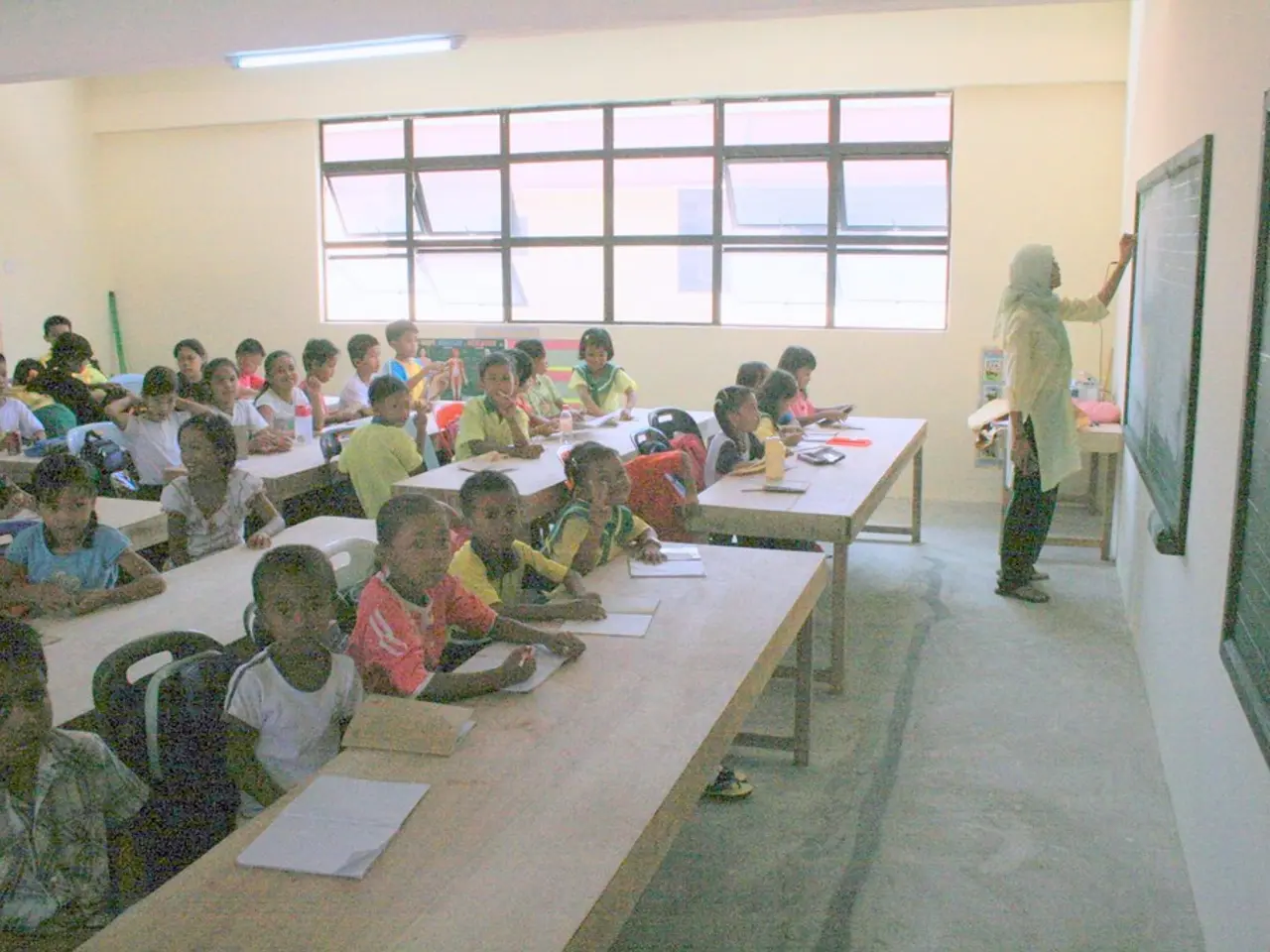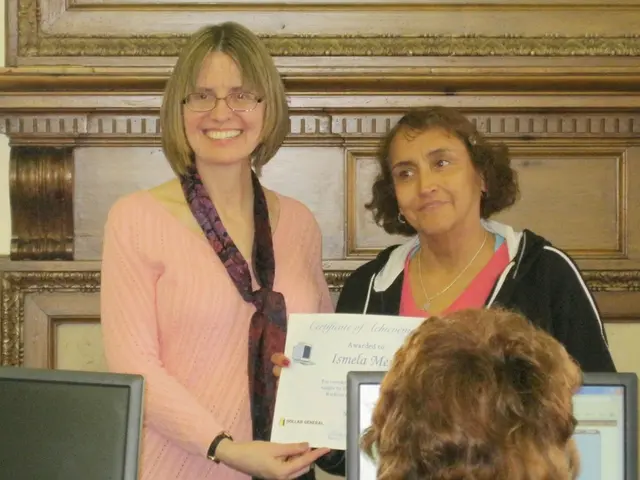Workers in Germany will now be safeguarded against radiation risks, as the Commission has endorsed a proposal for a directive on shielding workers from ionizing radiation threats.
The Free State of Saxony, Germany, has officially enforced a new administrative regulation that prohibits the use of gender-neutral language with gender asterisks (*) in official and educational contexts, including school projects. This policy, which was already in effect for about two years as an unofficial rule, has been reinforced by Saxony’s education authorities following Germany’s broader government stance.
The new regulation, presented by Conrad Clemens, Piwarz's successor, aims to provide legal certainty regarding the spelling rules. According to the rule, any special characters within a word are considered errors. This means that gender stars are now marked as errors in Saxon schools.
The updated spelling rules affect school projects by disallowing the incorporation of gender-neutral forms that use an asterisk or other neutral markers. Instead, the traditional German grammar and spelling rules must be adhered to, which require explicit male or female noun forms. For example, Lehrer for a male teacher and Lehrerin for a female teacher must be used.
The emphasis is on upholding traditional forms rather than modifying spelling rules themselves. In summary, gender-neutral constructs using "*" in nouns are banned in Saxony’s schools. School projects cannot use gender asterisks or other gender-neutral pronouns in writing.
This policy reflects a move away from recent trends attempting to create more inclusive or non-binary language forms in education. It's important to note that exceptions for spelling rules apply to free and private schools, with school principals having the discretion to handle student spelling. Additionally, exceptions remain for artistic texts in the context of the new regulation.
School projects funded by tax money may no longer use gender-neutral language in their documents. The new regulation also includes guidelines for third parties. The spokesperson for the Ministry of Culture announced this on Wednesday.
This impacts how students must approach gender representation linguistically in school work, requiring adherence to traditional masculine/feminine noun endings without neutral or inclusive modifications. No specific spelling reforms unique to Saxony were noted relating directly to orthography beyond this gender-neutral language restriction.
[1] Saxony Enforces Ban on Gender-Neutral Language in Schools. (n.d.). Retrieved March 28, 2023, from https://www.saxony.de/en/news/saxony-enforces-ban-on-gender-neutral-language-in-schools
[2] Saxony Bans Gender-Neutral Language in Schools. (2023, March 22). Retrieved March 28, 2023, from https://www.dw.com/en/saxony-bans-gender-neutral-language-in-schools/a-61764621
[3] Saxony's New Spelling Rules: A Look at the Changes. (2023, March 23). Retrieved March 28, 2023, from https://www.deutschewelle.com/en/culture/saxonys-new-spelling-rules-a-look-at-the-changes
[4] Saxony's New Spelling Rules: What Teachers Need to Know. (2023, March 24). Retrieved March 28, 2023, from https://www.spiegel.de/kultur/gesellschaft/sachsen-neue-rechtschreibung-was-lehrer-wissen-mussen-a-135942779.html
- This new policy on gender-neutral language in schools, approved in the Free State of Saxony, Germany, aligns with broader policy-and-legislation efforts, signifying a shift that may have ramifications in education-and-self-development policies nationwide.
- The enforcement of traditional gender-specific noun forms in Saxony schools, as part of the latest policy-and-legislation update, raises questions about the future of general-news reports on issues related to education, gender identity, and politics.




